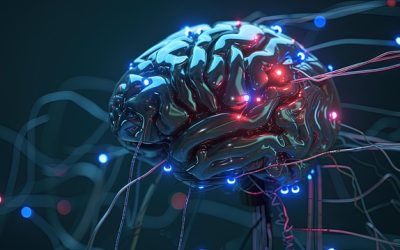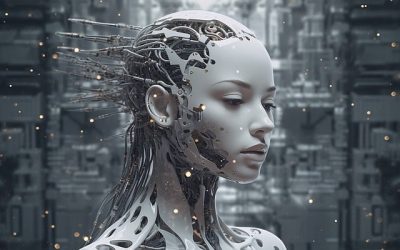Quantum computers operate based on the principles of quantum mechanics, which is a branch of physics that describes the behavior of matter and energy at the smallest scales, such as atoms and subatomic particles. Unlike classical computers that use bits (0s and 1s) for processing information, quantum computers use quantum bits, or qubits. Here’s a simplified overview of how quantum computers work:
Qubits: Qubits are the fundamental units of quantum computing. Unlike classical bits, which can only be 0 or 1, qubits can exist in multiple states simultaneously due to a phenomenon called superposition. This means a qubit can represent 0, 1, or any quantum combination of 0 and 1 at the same time.
Entanglement: Another critical quantum property is entanglement. When qubits become entangled, the state of one qubit becomes linked to the state of another, even when they are physically separated. Changes to one qubit will instantly affect the other, regardless of the distance between them.
Quantum Gates: Quantum computers use quantum gates, which are analogous to the logic gates in classical computing. Quantum gates manipulate qubits through operations that take advantage of superposition and entanglement. They can perform operations like flipping a qubit’s state, creating entanglement between qubits, and more.
Quantum Algorithms: Quantum computers use quantum algorithms specifically designed to take advantage of the unique properties of qubits. Some well-known quantum algorithms include Shor’s algorithm for factoring large numbers and Grover’s algorithm for unstructured search.
Quantum State Measurement: To extract useful information from qubits, a quantum computer performs a measurement operation. This operation causes the qubits to “collapse” into one of their possible states (0 or 1) based on probabilities determined by their quantum states.
It’s important to note that quantum computers are still in their early stages of development and are primarily used for specialized tasks, particularly those involving complex calculations or simulations. They have the potential to revolutionize fields like cryptography, optimization, and material science, but they are not yet a replacement for classical computers for general-purpose computing tasks. Building and maintaining stable quantum systems, known as quantum error correction, remains a significant challenge in the field.
How fast is a Quantum Computer?
The speed of a quantum computer is a complex topic and depends on several factors, including the number of qubits, the quality of the qubits, and the specific quantum algorithms being run.
- Qubit Count: One of the primary determinants of quantum computer speed is the number of qubits it has. In general, quantum computers with more qubits have the potential to perform more complex calculations and solve certain problems faster. However, adding qubits alone doesn’t necessarily guarantee a significant speedup, as the qubits need to be coherent and reliable.
- Gate Quality: The quality of quantum gates and the level of control over qubits are crucial. Higher-quality gates and lower error rates result in more reliable and faster quantum operations.
- Quantum Algorithms: The speed of a quantum computer also depends on the specific quantum algorithms being used. Some quantum algorithms, like Shor’s algorithm for factoring large numbers, can provide exponential speedup compared to classical algorithms for certain tasks. Other algorithms may only offer a polynomial speedup or may not be significantly faster than classical counterparts.
- Error Correction: Quantum computers are susceptible to errors due to factors like decoherence and environmental interference. Implementing quantum error correction codes is essential to make quantum computations reliable, but it comes at the cost of increasing the number of qubits and operations required.
- Application: The speed of a quantum computer can vary widely depending on the application. Some problems or simulations that are classically intractable can be solved exponentially faster with quantum computers, while others may not see a significant speedup.
As of my last knowledge update in September 2021, quantum computers are still in the early stages of development, and their speeds are highly variable. They are not yet consistently faster than classical computers for all types of tasks. Progress in the field is ongoing, and researchers are working to build more powerful and reliable quantum computing systems.
The speed of quantum computers is expected to improve as quantum technology advances, but it is difficult to provide specific speed measurements due to the rapidly evolving nature of the field. Quantum computing’s true potential will likely become clearer as more practical and efficient quantum algorithms are developed, and quantum hardware becomes more advanced and stable.
What can a Quantum Computer be used for?
Quantum computers have the potential to revolutionize various fields due to their unique computing capabilities, particularly for solving complex problems that are difficult or practically impossible for classical computers to tackle efficiently. Here are some potential applications of quantum computers:
- Cryptography: Quantum computers have the potential to break widely used encryption methods, such as RSA and ECC, by efficiently factoring large numbers. Conversely, they can also enable quantum-safe encryption techniques, which are immune to attacks by quantum computers.
- Optimization: Quantum computers can significantly accelerate optimization problems in various domains, such as logistics, finance, and supply chain management. They can find optimal solutions in large and complex datasets more quickly than classical computers.
- Drug Discovery: Quantum computers can simulate the behavior of molecules and chemical reactions with high accuracy. This can accelerate drug discovery processes by identifying potential drug candidates, predicting their properties, and simulating drug interactions.
- Material Science: Quantum computers can model and analyze the properties of materials at the quantum level. This can lead to the discovery of new materials with desirable properties for electronics, energy storage, and other applications.
- Machine Learning: Quantum computers can enhance machine learning algorithms, particularly for tasks like optimization, pattern recognition, and complex data analysis. Quantum machine learning has the potential to speed up training and improve the performance of AI models.
- Financial Modeling: Quantum computers can analyze complex financial data and optimize portfolios more efficiently, enabling better risk assessment, investment strategies, and fraud detection.
- Weather Forecasting: Quantum computers can improve weather forecasting models by simulating atmospheric and climate patterns more accurately and quickly, leading to more precise predictions.
- Aerospace and Space Exploration: Quantum computing can optimize spacecraft trajectories, simulate complex space phenomena, and solve problems related to space exploration and satellite communication.
- Supply Chain Management: Quantum computers can optimize supply chains by efficiently handling inventory, logistics, and distribution networks, leading to cost savings and improved efficiency.
- Pharmaceuticals: Quantum simulations can aid in drug design by modeling the behavior of molecules and predicting their interactions with biological systems, which can lead to the development of more effective drugs.
- Artificial Intelligence: Quantum computing can accelerate AI algorithms, enabling faster and more sophisticated natural language processing, computer vision, and other AI applications.
It’s important to note that quantum computers are still in the early stages of development, and practical, large-scale quantum computing systems are not yet widely available. Researchers are actively working to overcome technical challenges, such as qubit stability and error correction, to unlock the full potential of quantum computing. As the technology matures, it is likely to have a transformative impact on various industries and scientific fields.





0 Comments